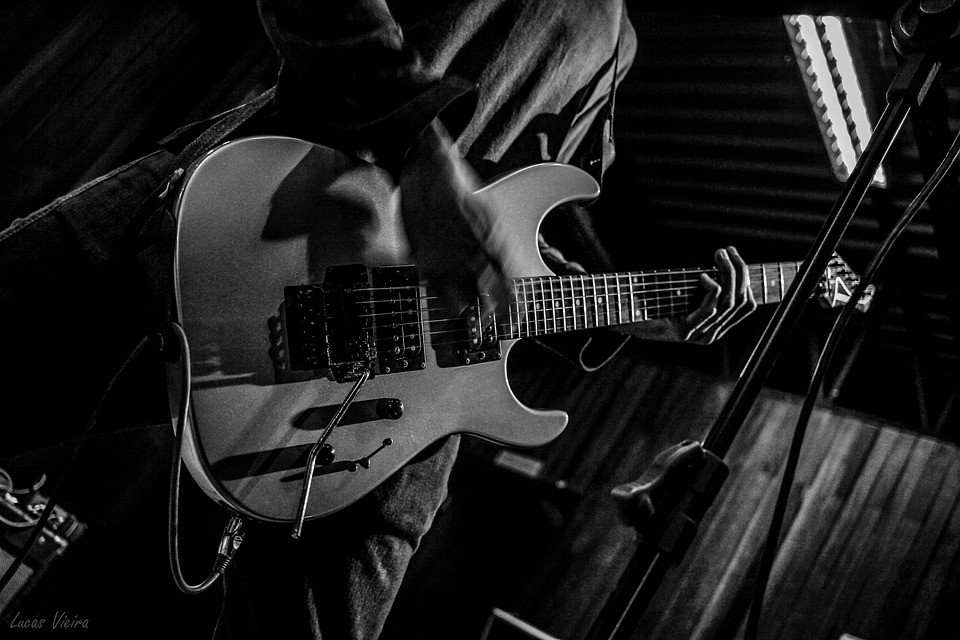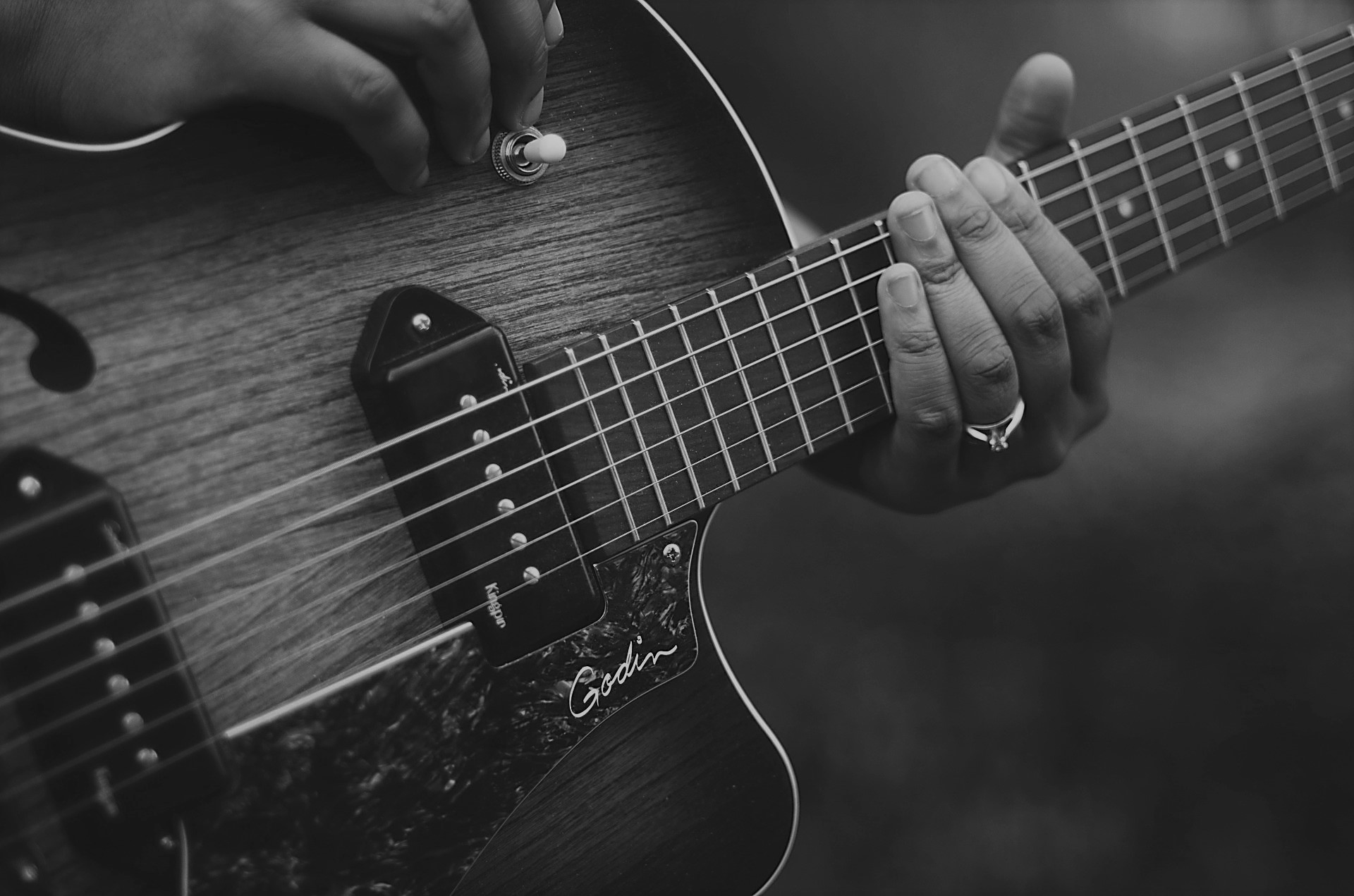In the second part of this tutorial, we look at minor, dominant and other useful scales using the method we outlined in Part 1. Give it a quick read to make sure you’re up to speed.
Minor Scales
Let’s get into some minor scales. Our default scale is going to be the Natural Minor or Aeolian Scale, which you can map out as follows:

Here’s the A string pattern:

Here’s the D string pattern:

And finally, the G string pattern:

Chords to make progressions with:
Gm | A° | Bb | Cm | Dm | Eb | F
or
Gm7 | Am7b5 | Bbmaj7 | Cm7 | Dm7 | Ebmaj7 | F7
By now you should be fairly comfortable with this method of mapping out scales on the fretboard, so from now on, I’m just going to give you the first pattern for each scale, and you should be able to work out how to play it all over the fretboard.
Dorian
Next up is the Dorian scale for which you simply take our default scale and change the b6 for a natural 6:

Phrygian
Then we have the Phrygian scale, which also only requires you to change one interval from our original default minor scale, the 2 for the b2:

Harmonic Minor
Next up is the Harmonic Minor scale, which also requires you to change one interval, and this time it’s the b7 to a natural 7:

Melodic Minor
Then, if we change that b6 to a natural 6, we get the Melodic Minor scale:

Learn more about the Melodic Minor Scale with our free eBook.
Dominant Scales
You can never have enough options over a dominant chord, so here are a few of my favorites:
Lydian b7

Mixolydian b6

Phrygian Dominant

Altered Scale
This scale works well over any altered dominant chord (7#9, 7b9, 7#11 etc.).

Other Useful Scales
Here are a couple of other scales that are fun to play and quite useful at times.
Diminished Half-Whole

Diminished Whole-Half

Locrian
The first port of call over a m7b5 chord.

So there you have it, one scale pattern than can be used all over the fretboard and we cover as much, if not more, ground than the standard CAGED and 3NPS patterns.
If you liked this approach, you’ll probably also love the 2 Position Guitar Scale System for scales and arpeggios.




Cheers Braulio!
Love the way you always simplify these otherwise complicated ideas. Thanks for the great intructions.